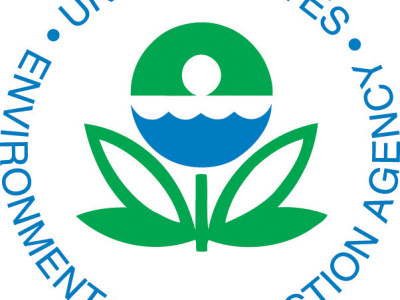Year: 2014
Whose Benefits Count?
EPA is right to include climate impacts on foreign countries in its cost-benefit analysis of regulations.
When a regulation benefits people outside the U.S., should those benefits be counted? Or should a cost-benefit analysis include only positive and negative domestic impacts? As a recent paper by Ted Gayer and Kip Viscusi highlights, EPA has been counting the benefits of restricting carbon emissions for the entire world, not just the U.S. …
Continue reading “Whose Benefits Count?”
CONTINUE READINGUpdate: U.S. Supreme Court Denies Review in California Low Carbon Fuel Standard Case
Justices Decline to Address Constitutionality of LCFS
The U.S. Supreme Court today denied certiorari in closely-watched cases in which the constitutionality of California’s Low Carbon Fuel Standard (LCFS) was being challenged. The LCFS is, in turn, an integral part of the state’s multifaceted strategy to reduce California’s aggregate greenhouse gas emissions as required under AB 32, the state’s landmark 2006 climate change …
CONTINUE READINGCalifornia’s Low Carbon Fuel Standard: Before the Supreme Court
Will the Justices Choose to Decide the LCFS’s Constitutionality?
You might think that the U.S. Supreme Court, having decided the Utility Air Regulatory Group v. EPA Clean Air Act case on Monday, was done for the current Term when it comes to environmental law and policy. Think again. Today the justices met in conference to decide whether to grant review in a large number of pending …
Continue reading “California’s Low Carbon Fuel Standard: Before the Supreme Court”
CONTINUE READINGOil By Rail: Nine Things California Can Do to Increase Safety
While FRA Considers New Federal Regulations, States Can Ramp Up Prevention and Emergency Response
At a joint Senate and Assembly hearing last week on oil by rail safety in California, some lawmakers expressed frustration at slow federal action, and asked what California can do to increase public safety. My testimony focused on federal preemption issues, defining areas where the state can regulate, and those where it is preempted by …
Continue reading “Oil By Rail: Nine Things California Can Do to Increase Safety”
CONTINUE READINGHow Scalia Might Have Ended the Best Hope of Killing EPA’s Greenhouse Gas Rules
The Supreme Court may have just eliminated a major legal and political risk to EPA’s greenhouse gas regulatory program
A couple of folks have already written about the UARG decision, and there is surely more to understand about the implications of the Scalia majority decision for future EPA greenhouse gas regulatory efforts. But I want to highlight one key implication of the decision for EPA’s overall greenhouse gas regulatory program. First, it is important …
Continue reading “How Scalia Might Have Ended the Best Hope of Killing EPA’s Greenhouse Gas Rules”
CONTINUE READINGStanding, Settlement, and Mass Torts
BP is trying to use standing law to wiggle out of its own settlement agreement. The courts have been right to say no.
BP entered into a settlement in a massive class action against it arising out of the BP oil spill. Now it’s trying to get out of part of the settlement while keeping the rest of the deal in place. BP’s argument involves three areas of confusion in standing doctrine: how does it apply to class actions, …
Continue reading “Standing, Settlement, and Mass Torts”
CONTINUE READINGToday’s Supreme Court Ruling: Three Key Questions
Direct implications are limited, but we’ll be reading the tea leaves for future implications.
Scholars, lawyers, and judges will be spending a lot of time dissecting today’s ruling. Overall, it’s a bit like yesterday’s World Cup game — EPA didn’t win outright but it didn’t lose either. Here are three key questions with some initial thoughts: What is the direct legal impact of the ruling? This was really …
Continue reading “Today’s Supreme Court Ruling: Three Key Questions”
CONTINUE READINGBreaking News: U.S. Supreme Court Renders Split Decision in Major Climate Change Case
The U.S. Supreme Court today issued its long-awaited decision in Utility Air Regulatory Group v. Environmental Protection Agency, the justices’ third encounter with climate change law and policy. In a Solomonic ruling, the Court ruled that EPA lacks authority to require the operators of “stationary sources” of greenhouse gas emissions (power plants, factories, etc.) to obtain …
CONTINUE READINGCalifornia Court Upholds State Water Board’s Broad Authority to Ban Unreasonable Uses of Water
Ruling is Especially Timely, Given California’s Ongoing and Severe Drought Conditions
I recently wrote about a then-pending court case in which California grape growers were challenging the State Water Resources Control Board’s limits on the growers’ diversion of water from California rivers and streams to provide frost protection for their grapes. That litigation is important because it goes to the heart of the Board’s authority under …
CONTINUE READINGNot My Default
With California’s AB 2145, legislators try to keep cities and counties from buying green power.
It is well-understood that people don’t change easily. I hold myself out as Exhibit A. When I signed up for landline phone and internet service, the phone charge was $35 per month, and the internet another $30. Over the years, although the phone company never announced a rate increase, I experienced rate creep. What once …
Continue reading “Not My Default”
CONTINUE READING






